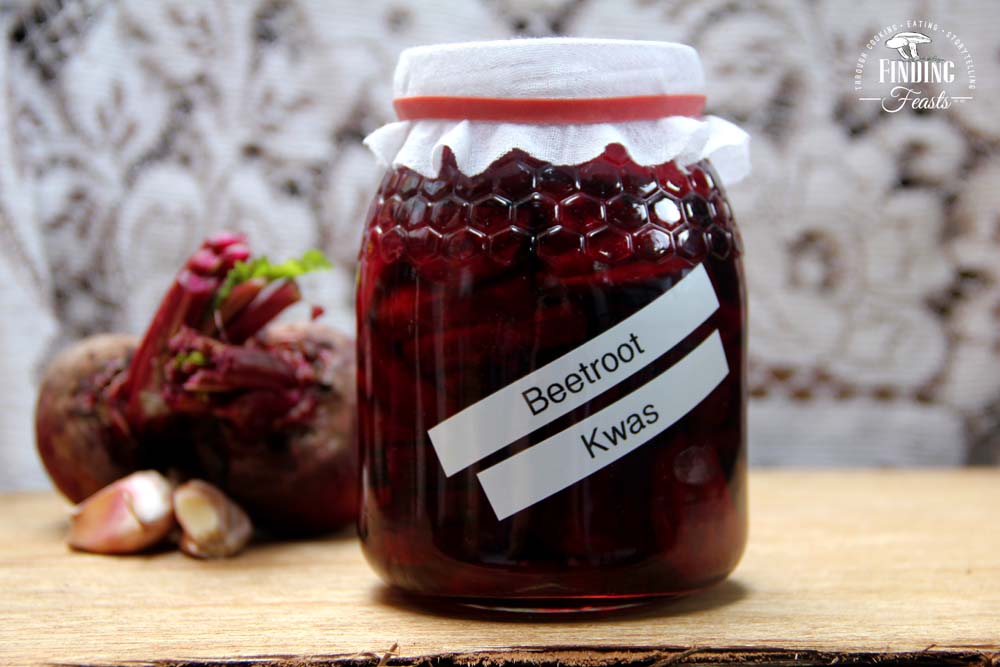
Beetroot Kvass or kwas (in Polish) – With the foodie world going crazy about fermented foods such as sauerkraut, kombucha tea, kimchi and kefir I thought it was time to pay some attention to kwas, a fermented tonic made from beetroots. Kwas is also known as Kvass, although that’s in Russian.
Fermented foods and juices are good for you but let’s quickly look at why:
- They add good bacteria to the gut, and seeing as the gut makes up about 80% of your immune system that’s a pretty good reason in itself!
- Fermenting foods creates more nutrients in the food whilst enhancing others
- If consumed prior to your meal fermented foods will improve your digestion and allow for the absorption of nutrients
- Fermented foods are high in b-vitamins, Omega-3 fatty acids and carry various strains of probiotics – much better than taking them from a jar in tablet form!
What are probiotics? They are live microorganisms such as bacteria, yeasts and fungi. Probiotics can protect against disease an boost your immune system and are essential especially is you have just gone a round or two of antibiotics.
So how does beetroot kvass fit into all of this?
Beetroot kvass has been consumed in Eastern European countries for many centuries. A common non-alcoholic drink, it was originally made from stale rye bread which gave it its colouring. This beetroot version has also been made by many households as the starter to an awesome beetroot barszcz (borscht if you are Russian).
Beetroot kwas shares similarities with kombucha tea, it is fermented in a similar way and is high in probiotics, it is also an excellent liver cleanser, rich in nutrients and fiber, high in antioxidant and anit-inflammatory properties, a perfect blood tonic! Mum and dad have been making it for as long as I can remember and drink it daily.
Best of all, it is extremely easy to make, although I did fail at my first attempt. I forgot to add the salt and sugar, key components! Simply peel your beets, add salt, sugar, juice of sauerkraut, water and ferment away. The fermentation process will depend on the time of the year and how warm your kitchen is. Do check it daily and if it starts to smell funny start again.
I typically let mine ferment away for 2-3 days, when light frothy bubbles form at the top you know your beetroot kvass is ready.
What does it taste like once ready? Sour, tangy earthy flavours.
Happy fermenting!
Bella 🙂

I like the idea that fermenting beetroots can give you alcohol. My wife and I plan to have a wine business. We would like to talk to a wine expert to help us out.
Hi Raymond, sadly not this year. It was looking like a fab season however with lock down and travel restrictions we could not proceed with anything. We will definitely be back in 2021!
I’m trying to find information in regards to salt in Kwas. I see you state that salt is crucial. I have an older Polish cookbook that doesn’t call for salt (it does call for a piece of rye bread to help the fermenting process of the beets). I wasn’t sure if this was correct but I want to follow the recipe. Kombucha doesn’t need salt so I don’t know!
Hi, yes the traditional recipes in Poland did ask for rye or sourdough bread but this is my mums recipe and she definitely uses salt. The small amount of salt assists with the fermentation. I make this weekly now and enjoy it in the morning.